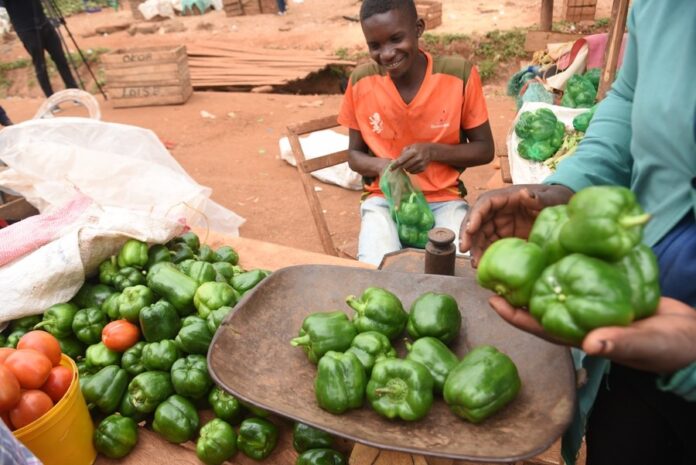Kenyan smallholder farmers are transitioning from survival to thriving by embracing climate-smart agricultural innovations that enhance resilience to the challenges posed by climate change. Farmers like Pauline Mogambi and Serah Ndung’u, from Nakuru County, have shifted to conservation agriculture and organic pest control methods, resulting in increased crop yields and improved food security.
Conservation Agriculture and Organic Methods
Mogambi’s adoption of conservation agriculture has transformed her farming practices. By integrating minimal tillage, intercropping, and the use of compost manure, her one-acre farm now produces enough crops to sustain her family and generate surplus income from local market sales. This shift from traditional farming techniques has tripled her maize, legume, kale, tuber, and fruit harvests, significantly boosting her family’s nutrition and financial stability.
Challenges Faced by Farmers
Farmers in Nakuru County face various challenges such as pest infestations, diseases, and shrinking arable land due to climate change. However, with support from initiatives like the Consultative Group on International Agriculture Research (CGIAR)’s “Ukama Ustawi,” farmers are receiving assistance in implementing technologies that improve climate resilience and food security.
Innovative Practices
Mogambi’s farm serves as a model for innovative farming practices, including zero tillage, intercropping, crop rotation, mulching, and agroforestry. Her success demonstrates how these climate-smart methods can lead to increased crop yields and greater income. For instance, she now harvests 36 bags of maize and 20 tonnes of silage annually, a significant improvement from the seven bags she previously harvested.
Indigenous Knowledge and Innovation
Soil scientist Boaz Waswa from the Alliance of Bioversity International and the International Center for Tropical Agriculture (CIAT) emphasizes the importance of indigenous knowledge and innovation in boosting the resilience of smallholder farmers. Empowering farmers to diversify crops, adopt zero tillage, use organic manure, and implement drip irrigation can help combat hunger, poverty, and malnutrition.
Gender-Inclusive Empowerment
The “Ukama Ustawi” initiative prioritizes gender inclusivity by empowering women and youth farmers to cope with climatic shocks. This approach ensures that a wider range of farmers benefit from the deployment of climate-smart innovations.
Sustainable Farming Practices
Serah Ndung’u, another farmer from Nakuru County, champions sustainable practices such as agroforestry, intercropping, and mulching. These methods have enabled her to grow various crops successfully, including maize, beans, kales, potatoes, and avocados, even during dry periods. The skills and knowledge she gained through the initiative have allowed her to retain soil moisture and cultivate a diverse range of crops.
Overall, Kenyan smallholder farmers are embracing climate-smart innovations that not only improve their resilience to environmental challenges but also boost food production, enhance nutritional security, and increase income. These advances are a step towards ensuring a sustainable future for the region’s agricultural sector.
















 The African Research (AR) Index is a comprehensive scholarly directory and database focused explicitly on journal publishers that publish and disseminate African research.
The African Research (AR) Index is a comprehensive scholarly directory and database focused explicitly on journal publishers that publish and disseminate African research.

